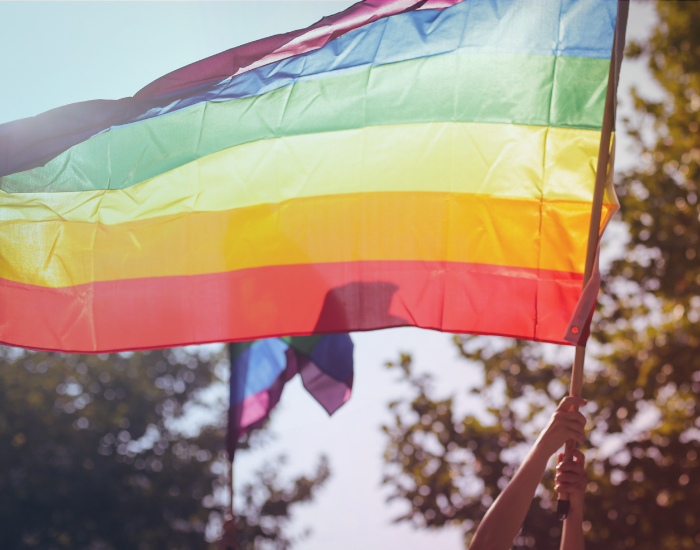
June is pride month for the LGBTQ+ community in many countries around the world. Pride month invokes feelings of community, solidarity, and support. It is a common time for those who may still be questioning their identity to come forward, and for others who are closeted to end their silence. While pride events help increase visibility and supportive spaces, it is crucial that that support remains now that June is over.
According to the National Alliance on Mental Illness, the LGBTQ+ community has higher occurrence of mental health issues including suicidal thoughts and attempts. “LGB adults are more than twice as likely as heterosexual adults to experience a mental health condition…High school students who identify as lesbian, gay, or bisexual are almost five times as likely to attempt suicide compared to their heterosexual peers…” and “…48% of all transgender adults report that they have considered suicide in the past 12 months, compared to 4% of the overall US population” (NAMI).
Mental Wellness and the LBGTQ+ Community
Members of the LGBTQ+ community may not seek help for their mental illness, and even if they do, they may not find adequate support. Considering “…homosexuality was categorized as a mental disorder by the American Psychiatric Association” until 1973, and gender dysmorphia is still considered a disorder, it’s not surprising that members of the LGBTQ+ community struggle to seek and find help (genesight). The double stigma of identity and mental illness can sometimes make it problematic or dangerous to talk to family, friends, and even mental health professionals.
The website Families for Depression Awareness explains this phenomenon further: “Unfortunately, LGBTQIA+ individuals often face discrimination making it difficult to access quality treatment for mood disorders…not all mental health providers understand their experiences. These negative interactions with providers can mean our loved ones are less likely to seek help when they need it most” (Families for Depression Awareness). This all helps explain why pride month is so important for its community. Pride month fosters connection and open communication, as well as providing education and awareness.
If you or someone you know requires more support, it is important to search for whatever resources you need, during Pride and beyond.
HELPLINES
Crisis and support hotlines are available 24/7 on both national and local levels, but there are other options as well. The Trevor Project offers crisis intervention and suicide prevention services to people under 25. Help is available via phone, text, and online chat. Similarly, the Translifeline offers phone assistance for transgender youth. The lifeline is staffed by transgender volunteers, but the organization has other resources as well, including financial assistance and guidance through name changes and obtaining gender affirming identification.
EDUCATION
The American Psychological Association website has a comprehensive resource for LGBTQ+ health and wellness. It offers information on specific health topics such as HIV/AIDS and suicide prevention. The APA also offers information for community members in various age groups, as well as families. The Association of LGBTQ Psychiatrists and its Journal of Gay and Lesbian Mental Health offer more academic resources, though the spread of topics is similarly thorough. The site offers radio interviews, fact sheets, treatment guidelines, and more.
MENTAL HEALTH ASSISTANCE
The Gay and Lesbian Medical Association (GLMA) offers a directory of mental health providers who have identified themselves as LGBTQ friendly. Because providers list themselves, the association recommends you still do your own research into patient reviews and/or community partners. GLMA also offers information on health issues affecting the community, as well as transgender specific health resources. The Human Rights Campaign “Healthcare Equality Index” comes at this from another angle: “In its 11th year, the Healthcare Equality Index (HEI) is the national LGBTQ benchmarking tool that evaluates healthcare facilities’ policies and practices related to the equity and inclusion of their LGBTQ patients, visitors and employees. The HEI 2018 evaluates more than 1,600 healthcare facilities nationwide.”
WORKS CITED
“Happy Pride Month! Mental Health Resources for LGBTQIA+ People.” Families for Depression Awareness, June 2019, familyaware.org/lgbtqia_resources/.
“LGBTQ.” NAMI, www.nami.org/find-support/lgbtq.
“Pride Month: Seeking Better Mental Health for the LGBTQ Community.” GeneSight, 11 June 2019, genesight.com/pride-month-seeking-better-mental-health-for-the-lgbtq-community/.



